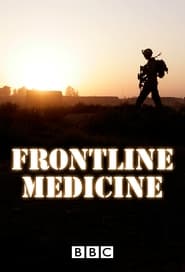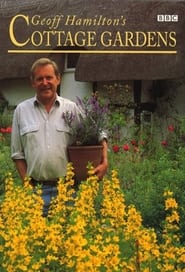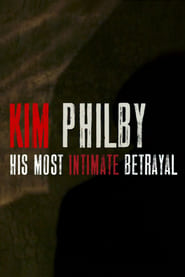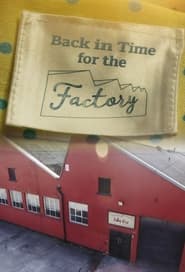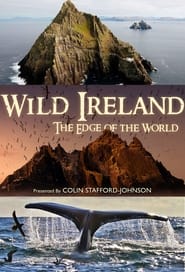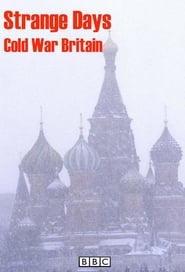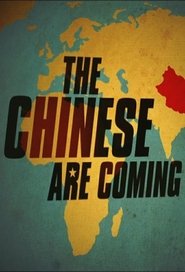Bbc Two TV Series - Page 82
-
For Whom the Bell Tolls
0000
For Whom the Bell Tolls is a British television series first aired by BBC in 1965, based on the novel by Ernest Hemingway. It stars John Ronane, Ann Bell, Julian Curry, Glynn Edwards and Joan Miller. The film was adapted for television by Giles Cooper and was directed by Rex Tucker. It consisted of four 45-minute episodes, the first of which aired on 2 October 1965. According to the BBC archives none of the episodes of the film still exist. -
Brainbox Challenge
2008
Brainbox Challenge
2008
Clive Anderson hosts a brain training quiz show in which contestants battle to prove themselves in a sequence of brain games which test their memory, language, visual, numerical and spacial skills. -
Frontline Medicine
2011
Frontline Medicine
2011
Michael Mosley travels from the frontline of war to the frontline of research to uncover the medical breakthroughs that are coming out of current conflicts. -
Storm Troupers: The Fight to Forecast the Weather
2016
Alok Jha charts the history of weather forecasting from its origins in the early 19th century. -
Craftsmen
1971
-
Geoff Hamiltons Cottage Gardens
1995
Gardening series delving into the history of cottage gardening, Looks to the old cottage gardens of the past and adapts the more popular features to modern gardens. In building three cottage gardens from scratch at his home in Barnsdale, Geoff Hamilton set out to simplify the practical problems of creating a natural rustic look. -
Kim Philby - His Most Intimate Betrayal
2014
In this two part special, best-selling author Ben Macintyre explores Kim Philby, the most famous double agent in history. -
Back in Time for the Factory
2018
star 6A group of modern women are going back in time to the 60s, 70s and 80s to work and live through three decades of British factory life and learn how an unsung army of female workers took on the fight for equality at work and at home - how will these 21st-century women adapt to a period of rampant sexism, huge gender pay gaps and tough working conditions? -
Carols from King's
1954
Carols from King's
1954
A solo chorister sings Once in Royal David's City to begin the traditional celebration of Christmas from the candlelit chapel of King's College, Cambridge. The world-famous choir sings carols old and new. Filmed amidst the beauty of historic King's College Chapel and first televised in 1954, and annually since 1963. -
The Fitz
2000
The Fitz
2000
The Fitz is a British sitcom written by stand-up comedian Owen O'Neill that was first broadcast on BBC Two between 4 August and 8 September 2000. It concerns an "unhinged Irish family" who live on the border between Northern Ireland and the Republic of Ireland. The series fared poorly critically, with some attacking its stereotyping and dated humour. -
Wild Ireland: The Edge of the World
2017
star 8.3Professional nature photographer Colin Stafford-Johnson takes a year-long journey up the west coast of Ireland, once thought to be "the edge of the world." As he winds he leisurely way up the coast he stops to appreciate some of the natural wonders the area offers, both biological and geographical. -
Strange Days: Cold War Britain
2013
star 9BBC Two history series on Britain and the Cold War, looking at the period from the end of the 1950s to the mid-1970s. -
The Beat Room
1964
The Beat Room
1964
A series of British television programmes presenting beat, rhythm and blues and other pop music. -
The Chinese Are Coming
2011
star 6.3Justin Rowlatt investigates the spread of Chinese influence around the planet and asks what the world will be like if China overtakes America as the world's economic superpower. -
Can't Take it with You
2011
Sir Gerry Robinson helps two families torn over what to write in their wills. -
Elstree: Britain's Hollywood
1989
Two-part documentary celebrating the 75th anniversary of what was once the biggest film production centre outside Hollywood: Elstree. -
Traders: Millions by the Minute
2014
Two-part documentary series which goes inside the fast and fiercely competitive world of financial traders to meet the men and women who play the markets in London, New York, Chicago and Amsterdam. -
Wheelbase
0000
Wheelbase
0000
Wheelbase was a BBC television series about cars broadcast on BBC2 between 1964 and 1975. Amongst its presenters were Gordon Wilkins between 1964 and 1973 and Cliff Michelmore. The show was the predecessor of Top Gear. Wheelbase was amongst the first programmes in the UK to be shown in colour during BBC2's "colour launching period". Wheelbase's coverage of Formula One motor racing in the late 1960s was repeated during 2007 on UK satellite channel ESPN Classic. The programmes were transmitted largely as originally broadcast, but with occasional captions to put period commentary into context. -
Meet the Ancestors
1998
star 7Meet the Ancestors aka Ancestors was a BBC Television documentary series that documented the archaeological excavation and scientific reconstruction of human remains. The series was introduced by archaeologist Julian Richards and often included facial reconstructions by Caroline Wilkinson.

